Meet the team behind Innovating Learning and Education in the Era of AI.
MIT RAISE TEAM
We bring together diverse expertise from faculty, staff and students across all five schools of MIT.
Faculty and Research Scientists
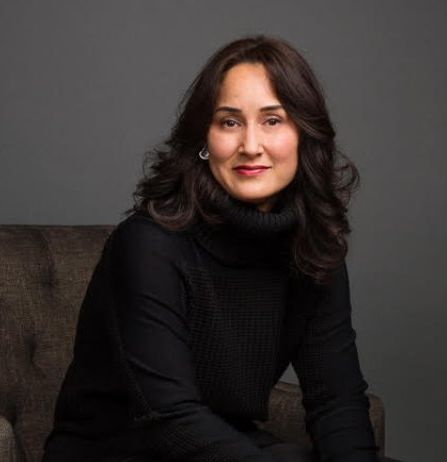
Cynthia Breazeal
Director, RAISE ● Professor, MIT Media Lab, Personal Robots Group ● Associate Director, MIT Media Lab
Breazeal leads RAISE to advance research and innovation at the intersection of AI, social empowerment, and education and to foster diversity and inclusivity in an AI literate society.
Her research investigates new ways for K-12 students to learn about AI concepts, practices and ethics by designing, programming, training and interacting with robots, AI toolkits and other technologies. Her research also develops personalized learning companions for language, literacy and social-emotional development.

Eric Klopfer
Co-Director, Professional Development and Education Research ● Professor, Comparative Media Studies/Writing ● Director, Eduction Arcade ● Co-Director, J-WEL World Education Lab
Klopfer is an expert in serious game design to promote student engagement and learning in STEM. His work uses a design based research methodology to span the K-12 educational technology ecosystem, from design and development of new technologies to professional development and implementation to prepare the next generation of STEM educators. He is Director of the Scheller Teacher Education Program. Tweets from @eklopfer

Hal Abelson
Co-Director, AI Literacy & Technologies ● Professor of Computer Science and Engineering, MIT CSAIL ● Founder, App Inventor
Abelson is a pioneer of constructionist learning and computational thinking. He has developed tools and programming languages to help students learn about AI and computer science. App Inventor empowers people with little programming experience to write mobile phone applications. His team is expanding App Inventor to help students learn about AI and develop AI-enabled mobile apps.
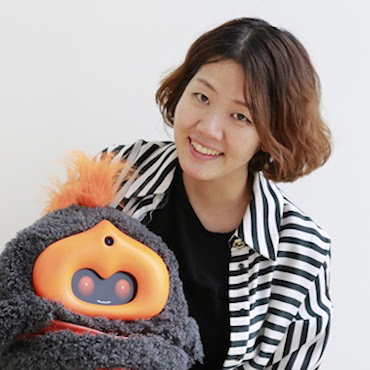
Hae Won Park
Co-Director, AI-Supported Learning ● Research Scientist, MIT Media Lab, Personal Robots Group
Hae Won Park is an expert in Social Robotics and is a Principal Investigator of the Social Robot Companions Program. Her research focuses on socio-emotive AI and machine learning applied to the personalization of social robots that support long-term interaction with people. For this project, she develops peer-like social robots that play educational games with young children to foster literacy and language skills as well as positive learning attitudes.
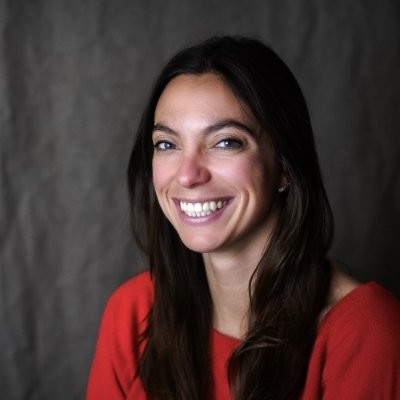
Christina Bosch
Research Scientist, MIT Scheller Teacher Education Program
Christina is interested in supporting evidence-based practices in education and design-based implementation research in schools.
Student Research Assistants
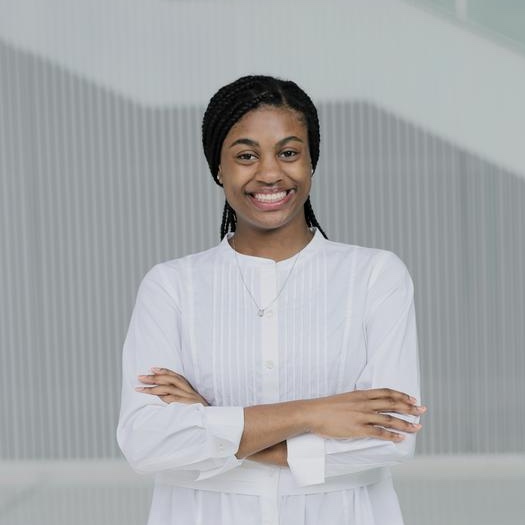
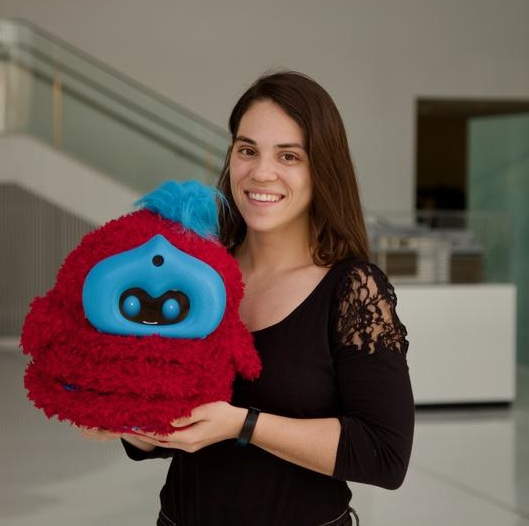
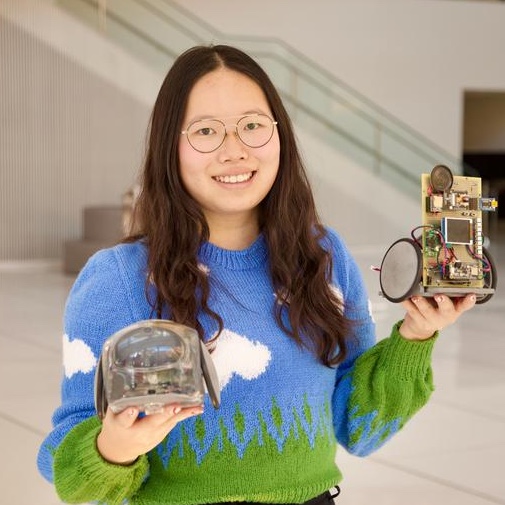
Isabella Pu
Research Assistant, Personal Robots Group
Isabella Pu investigates how humans can work collaboratively with robots and AI to develop novel experiences that spark creativity and curiosity. Specifically, she focuses on harnessing the joyful power of these technologies to encourage creative learning, empower the next generation with technological skills, and explore human-technology artistic co-creation. Previously she worked on animations to teach non-expert audiences about generative AI, programmed a team of robots to form a generative percussion quartet, developed programmatic art that shapeshifts depending on musical changes, and worked on games to teach about sustainability. She received my B.S.E. in Computer Science from Princeton University in 2023 along with a certificate in Robotics and Intelligent Systems.
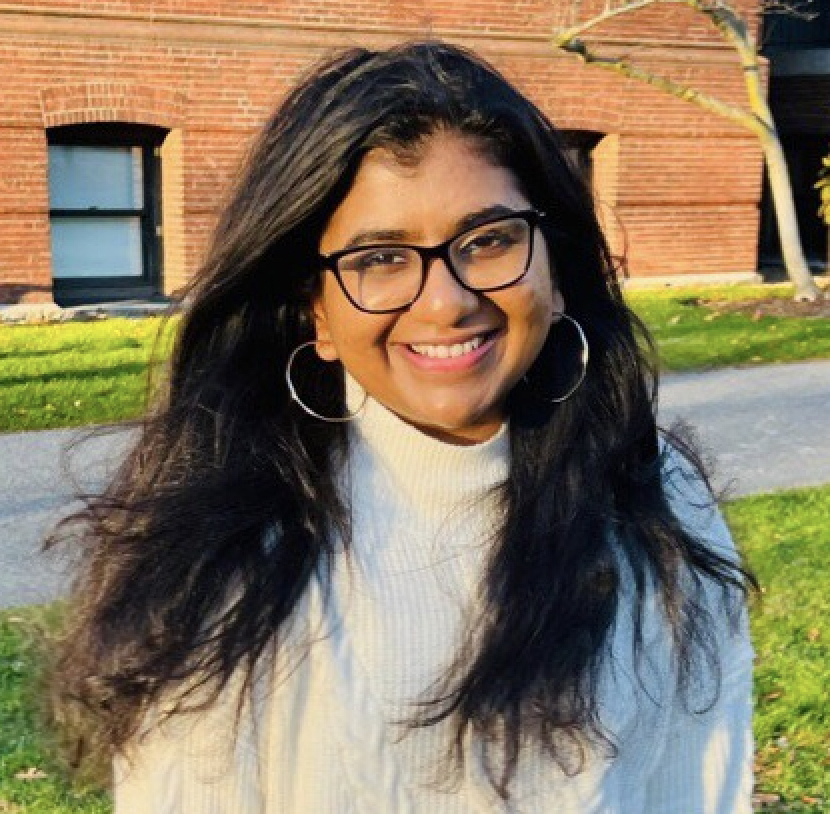
Prerna Ravi
Research Assistant, MIT App Inventor
Prerna is an Electrical Engineering and Computer Science (EECS) PhD student at MIT CSAIL. Her research focuses on designing large-scale educational tools and learning experiences catered to students of diverse cognitive and physical abilities as well as underrepresented social contexts. She has conducted numerous workshops with high school students to introduce programming and mobile app development to them using AI-powered tools like MIT App Inventor. During her undergrad at Georgia Tech, she conducted ethnographic studies investigating the creative workarounds that educators in marginalized communities devised during covid-19 to navigate digital resource constraints. She also built educational games that empowered deaf kids (born to hearing parents) to learn sign language during their critical language learning age of 3-5 years. She has also worked with non-profits globally to introduce AI curricula to underserved students by organizing participatory design workshops with their teachers and parents. She is currently investigating how Generative AI can be integrated into reflective scaffolding tools that strengthen students’ self-regulated learning by providing some structure for them and fostering creativity.
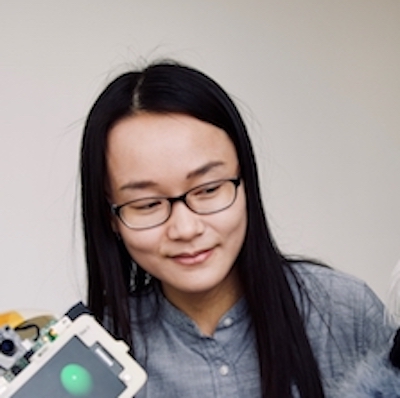
Huili Chen
Graduate Student, MIT Media Lab, Personal Robots Group
Huili Chen is a PhD graduate research assistant in the Personal Robots group at the MIT Media Lab. Her research interests
encompass affective computing, human-robot interaction, machine learning, and psychology. She designs algorithms for social robots that can adaptively support and engage children as empathetic, peer-like companions to facilitate learning outcomes. She also computationally models parent-child interaction dynamics during storytelling.

Randi Williams
Graduate Student, MIT Media Lab, Personal Robots Group
Randi Williams is a PhD graduate research assistant developing new technologies and curriculum for K-12 AI Literacy. She has developed a number of AI education projects, including PopBots, social robot learning companions that teach AI through social interaction. Additionally, she runs studies that investigate children’s relationships with intelligent agents. To address misunderstanding and mistrust of AI, Randi is preparing the next generation to use AI to solve important problems in their communities.
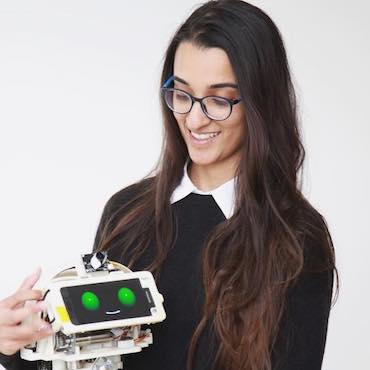
Safinah Ali
Graduate Student, MIT Media Lab, Personal Robots Group
Safinah is a PhD research assistant in the Personal Robots Group at the MIT Media Lab. Her work focuses on leveraging child-robot interaction to enhance early childhood literacy as well as developing children’s learning mindsets such as creativity, growth mindset and curiosity. Her recent work involves designing game interactions that afford children and embodied robots co-create art. Her previous work has revolved around educational game design, assistive technology and human-computer interaction.

Daniella DiPaola
Graduate Student, MIT Media Lab, Personal Robots Group
Daniella DiPaola is a MS graduate research assistant with expertise in human factors, user-centered design, STEM learning technologies for children. She has worked as a researcher in the consumer robotics industry, focusing on human-robot interaction paradigms in the home, long-term livability, and robots in the lives of children and older adults. Her research interests include understanding the ethical, social, and emotional implications of technology. She is currently working on AI + Ethics curriculum for K-12 students.
Xiajie Zhang
Graduate Student, MIT Media Lab, Personal Robots Group
Xiajie Zhang has worked on various projects in child-robot interaction with a focus on literacy education and has experiences in affective analysis, educational game development, interaction design, and computational HRI. His interest is the intersection of cognitive science and robotics. He is especially interested in studying social cognition and developing human-robot interactions that could provide unique and uplifting experiences for people.
Staff
Lydia Guterman
Teacher Development Specialist
Lydia is the Teacher Development Specialist for RAICA. Before joining the STEP Lab, Lydia was a school librarian in the Boston area. She also coordinated the Media Lab’s Public Library Innovation Exchange (PLIX). Lydia is a firm believer in Seymour Papert’s idea of “hard fun” and loves designing professional development opportunities that are engaging and challenging. Lydia holds a B.A. in American Studies from Wellesley College and an M.Ed. in Library Media Studies from Salem State University.

John Masla
Assessment Specialist
John joins the STEP lab as an assessment specialist with the RAICA project. He previously taught middle school English Language Arts, and has been involved in extracurricular education in basketball, music, and coding. He holds a B.A. in History from Whitman College and a Master of Education (M.Ed) from the University of Washington. Outside of work, he enjoys cooking, playing guitar, and spending time outdoors.

David Kim
Software Developer, MIT App Inventor
David is a software developer at MIT App Inventor. He is interested in the question “What do we need to create so that kids can learn technology with ease?”. David is working on the topic of Conversational AI and building no-code platforms. Other than developing, David enjoys interacting and guiding students to fulfill their goal at App Inventor.

Jeff Freilich
Program Lead, AI Literacy Project, MIT
Jeff has been at MIT for over twelve years working to develop and nurture research ties between industry and academia, as well as developing technical online courses. Previously, he’s worked in R&D, product management, marketing and business development roles in industry. Jeff holds a B.Sc. in mechanical engineering from Cornell University and a M.Sc. in mechanical engineering from the Ben-Gurion University of the Negev. He also holds a M.Sc. in management from Boston University.
Sarah Wharton
Curriculum Designer
Sarah Wharton is a curriculum designer working in the Scheller Teacher Education Program. Before joining MIT, she taught computer science to middle school students in Cambridge, Massachusetts. She is particularly interested in making computer science education accessible and engaging to students who don’t yet see themselves in STEM.
Selim Tezel
Curriculum Lead, MIT App Inventor
Selim is a former K-12 mathematics teacher who has taught overseas and in the US for 22 years, exploring intersections of technology and playful constructionist pedagogies in the classroom. At MIT App inventor he leads an NSF funded collaboration with YR Media (former Youth Radio) on the Youth Mobile Power series and the Outsmarting Artificial Intelligence project as well as coordinating international contests such as the App of the Month, Coronavirus App Challenge and the annual virtual Hackathon.

Robert Parks
Curriculum Designer, MIT App Inventor
Robert is a curriculum developer, writer, and designer for the App Inventor team. He previously designed and wrote educational materials for NASA and for out-of-school engineering programs at PBS. In his role as a technology journalist, Robert has served as a senior editor at Wired magazine, and as a contributing writer for Wired, Popular Science, and Make magazines. His 2005 publication, Makers, was the first book about the maker movement.

Marisol Diaz
Program Manager, MIT RAISE and MIT App Inventor
Marisol Diaz has been with MIT App Inventor since 2013, currently also with RAISE, and has been at MIT for over 20 years.
Marisol has a background in management, sales, communications, customer service, event planning and marketing. She worked for the World Wide Web Consortium (W3C) for her first 10 years at MIT.

Angie Zhou
Education Specialist, MIT App Inventor
Angie Zhou is part of the Education Team at MIT App Inventor. She has extensive experience teaching coding to young students. She is also experienced in curriculum design, teacher training, and business development.

Jeff Schiller
Software Developer, Security Architect and Network Manager, MIT App Inventor
Jeff has spent more than 40 years building systems that have to work 24/7 with minimal human intervention. As Area Director for Security with the Internet Engineering Task Force (IETF), he spent 9 years shepherding the development of critical Internet security technology including IP layer encryption, E-mail encryption and Transport Layer Security (https). His recent work involves providing development and operations for MIT App Inventor.

Evan Patton
Lead Software Engineer
Evan is the Lead Software Engineer at MIT App Inventor. He aims to help App Inventor users realize the full potential of their app ideas through the development of new components and features to aid in collaboration, rich data collection and visualization, and efficiency. His research interests include real-time collaboration, Internet of Things, and applications of artificial intelligence to facilitate mobile app development. Evan also oversees the development of the MIT Punya project to extend App Inventor with semantic capabilities for healthcare and humanitarian causes. He holds a Ph.D. in Computer Science from Rensselaer Polytechnic Institute.
Susan Lane
Software Engineer, MIT App Inventor
Susan Rati Lane has been a software engineer since 1996, and she has followed an eclectic career through many industries and locations in the western world. Her core expertise is in data modeling, but shes done some of almost everything. Career highlights include work in software support for brain imaging and clinical drug trials. She joined the MIT App Inventor team in 2018. She is passionate about writing software that improves lives.

Mary Cate Gustafson Quiett
Curriculum Design Manager
Mary Cate is a curriculum design manager for the STEP Lab and program manager for the Undergraduate Teaching Opportunities Program (UTOP). After earning her B.S. in Secondary Education and Mathematics from DePaul University, Mary Cate assisted, tutored, and taught in a wide range of schools including those in urban, rural, and suburban communities, in public, private, and charter settings. She went on to earn her Masters of Public Affairs from the Goldman School for Public Policy at UC Berkeley. For two years Mary Cate worked as a PLUS Research Fellow for UC Berkeley’s Center for Cities and Schools where she co-designed district policy recommendations with teachers and administrators. Mary Cate welcomes opportunities to flex her co-design, logic, and collaborative leadership skills to help create a more equitable and sustainable education system.
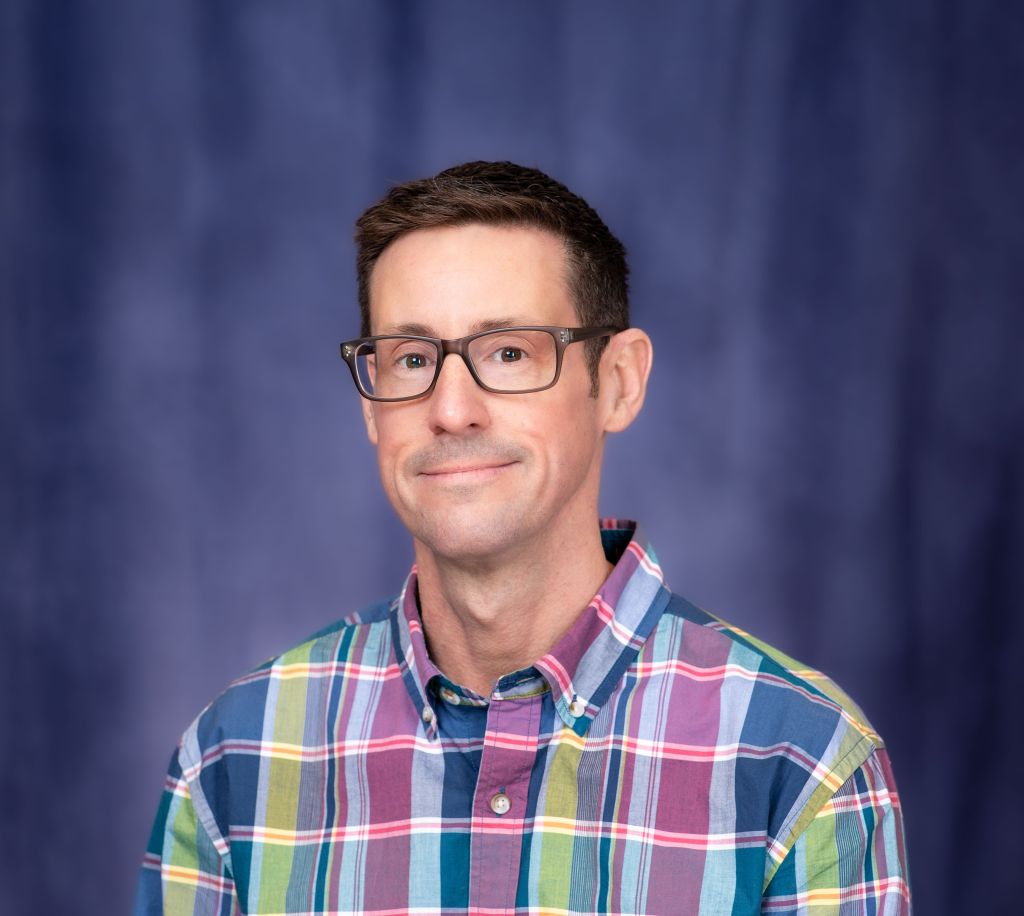
Steve Nelson
Senior Manager, MIT Integrated Learning Initiative
Steve, Senior Manager for the MIT Integrated Learning Initiative, is passionate about education and learning, having spent the last few years working to improve workplace learning in the corporate world, he is now focused on helping find research solutions to solve education issues from pK-12 to higher education to workplace learning. Steve works with research partners on the campus of MIT to facilitate transformational learning objectives and create educational best practices.

Andrew Whitacre
Communications Manager
Andrew directs the communications efforts for RAISE and MIT’s Comparative Media Studies/Writing program. A native of Washington, D.C., he holds a degree in communication from Wake Forest University, with a minor in humanities, as well as an M.F.A. in creative writing from Emerson College. This work includes drawing up and executing strategic communications plans, with projects including website design, social media management and training, press outreach, product launches, fundraising campaign support, and event promotions.

